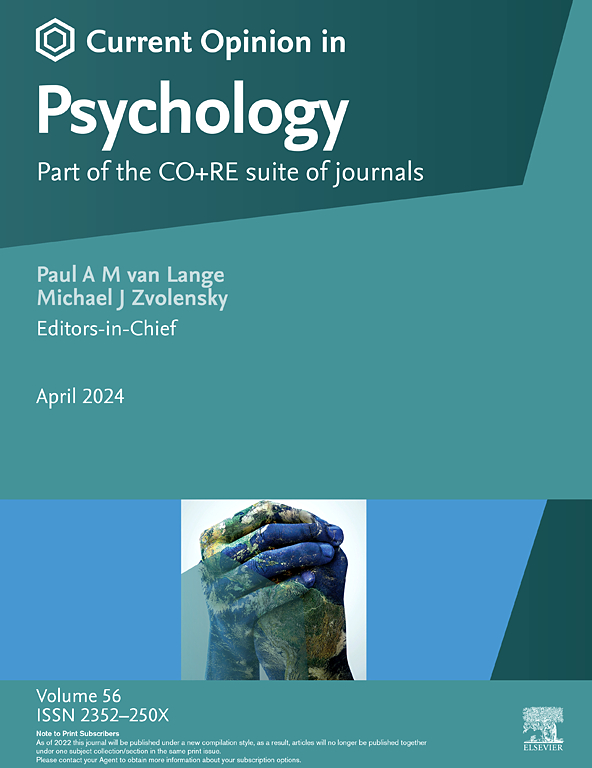助记不对称:集体记忆如何塑造和反映群体间关系
IF 6.9
2区 心理学
Q1 PSYCHOLOGY, MULTIDISCIPLINARY
引用次数: 0
摘要
这篇综述综合了最近的研究结果,表明优势群体和弱势群体构建了不同的记忆叙事,每个群体都服务于不同的身份相关需求,并激发了从维持现状到社会政治变革的不同集体行动。博物馆和教育系统等机构通过加强主导群体的观点或使弱势群体的观点得到承认来调解这些进程。我们将这些发展整合到不对称记忆-身份模型(AMIM)中,该模型概念化了记忆内容如何反映权力结构,并有助于维持或争论社会政治等级。该模型还强调了制度背景如何决定记忆是强化现有的等级制度,还是支持更包容、更公正的群体间参与。本文章由计算机程序翻译,如有差异,请以英文原文为准。
Mnemonic asymmetries: How collective memory shapes and reflects intergroup relations
This review synthesizes recent findings demonstrating that advantaged and disadvantaged groups construct divergent memory narratives, each serving distinct identity-related needs and motivating contrasting collective actions from status quo maintenance to sociopolitical change. Institutions such as museums and educational systems mediate these processes by either reinforcing dominant-group perspectives or enabling recognition of disadvantaged groups perspectives. We integrate these developments into the Asymmetric Memory-Identity Model (AMIM), which conceptualizes how memory content reflects power structures and contributes to maintenance or contestation of sociopolitical hierarchies. The model also highlights how institutional contexts can determine whether memory reinforces existing hierarchies or supports more inclusive and just intergroup engagement.
求助全文
通过发布文献求助,成功后即可免费获取论文全文。
去求助
来源期刊

Current Opinion in Psychology
PSYCHOLOGY, MULTIDISCIPLINARY-
CiteScore
12.10
自引率
3.40%
发文量
293
审稿时长
53 days
期刊介绍:
Current Opinion in Psychology is part of the Current Opinion and Research (CO+RE) suite of journals and is a companion to the primary research, open access journal, Current Research in Ecological and Social Psychology. CO+RE journals leverage the Current Opinion legacy of editorial excellence, high-impact, and global reach to ensure they are a widely-read resource that is integral to scientists' workflows.
Current Opinion in Psychology is divided into themed sections, some of which may be reviewed on an annual basis if appropriate. The amount of space devoted to each section is related to its importance. The topics covered will include:
* Biological psychology
* Clinical psychology
* Cognitive psychology
* Community psychology
* Comparative psychology
* Developmental psychology
* Educational psychology
* Environmental psychology
* Evolutionary psychology
* Health psychology
* Neuropsychology
* Personality psychology
* Social psychology
 求助内容:
求助内容: 应助结果提醒方式:
应助结果提醒方式:


